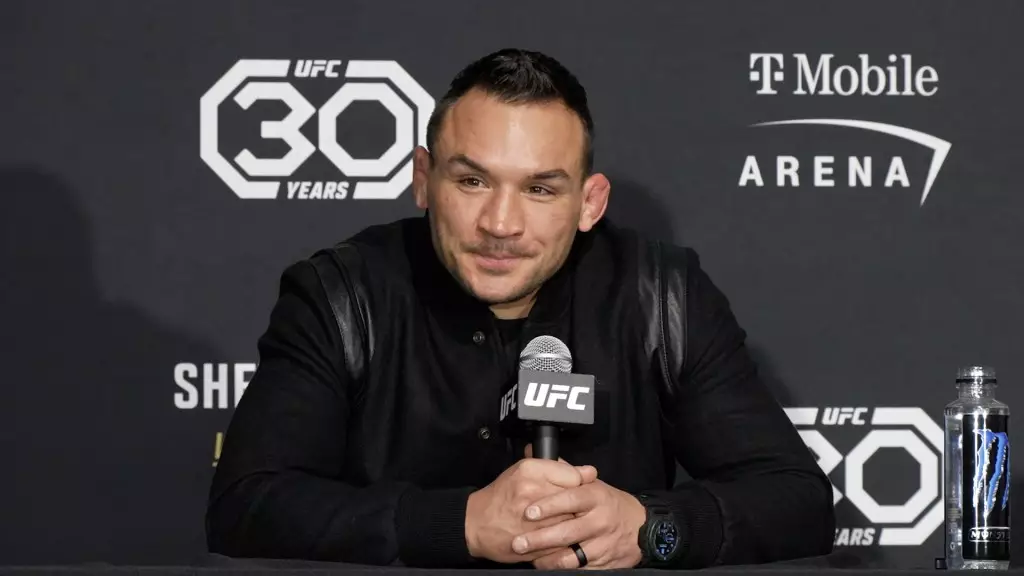In the world of mixed martial arts, the build-up to a fight is often as crucial as the contest itself. Michael Chandler, a seasoned fighter, finds himself in a back-and-forth verbal exchange with Arman Tsarukyan, who has been openly critical of Chandler’s fighting abilities. Tsarukyan recently suggested that Chandler would be an “easy fight” for Charles Oliveira, intensifying the rivalry between them. Chandler’s ensuing response is a mix of respect and defiance, showcasing the multifaceted nature of fighter dynamics as they approach their respective bouts.
Chandler’s Fight IQ Under Scrutiny
Tsarukyan’s comments serve to highlight a broader narrative within the MMA community regarding Chandler’s fight IQ. Despite making his comeback to the octagon against Oliveira soon, Chandler seems to be reluctant to engage in a heated rivalry. His measured response to Tsarukyan indicates a tactical mindset, rather than being drawn into petty altercations. This is a critical aspect of Chandler’s character as a fighter; he acknowledges the growth of younger contenders like Tsarukyan while simultaneously defending his own standing in the sport. He recognizes Tsarukyan’s recent victory over Oliveira as a noteworthy achievement, although he cannot help but undercut the compliment with his own predictions about the upcoming match between Tsarukyan and the reigning champion, Islam Makhachev.
The dichotomy of respect and competition is palpable in Chandler’s statements. He expresses admiration for Tsarukyan’s advancements in the sport, noting his maturity and skill development, while also hinting at a competitive disdain. Rhetorically comparing Tsarukyan to other fighters he has faced, Chandler establishes a context that shows he is unfazed by comments aimed at undermining his expertise. This mental fortitude may serve Chandler well as he prepares for a crucial rematch with Oliveira, one in which he aims to avenge his previous loss for the vacant lightweight title at UFC 262.
As Chandler gears up for this pivotal fight against Oliveira, the implications stretch beyond just another addition to his record. A successful performance could rejuvenate his career and validate his standing among the lightweight elite. On the flip side, Tsarukyan’s future in the title race hangs in precarious balance, with his upcoming potential bout against Makhachev representing an essential stepping stone toward his own aspirations. The stakes are high for both fighters—Chandler for redemption and legacy, and Tsarukyan for establishing himself within a competitive hierarchy.
Chandler’s assertion that “a happy fighter is a dangerous fighter” reflects a broader understanding of mental state in combat sports. His focus on maintaining a positive attitude toward his opponents while not letting negativity cloud his performance is an essential lesson in sports psychology. His ability to compartmentalize respect from rivalry underscores a calculated approach to competition—one that can ultimately lead to success. As the countdown to their fights continues, Chandler not only has to prepare physically but also navigate the evolving narratives within the sport, reinforcing the idea that while rivalry can embellish the fight theme, respect remains an integral part of a fighter’s journey.

